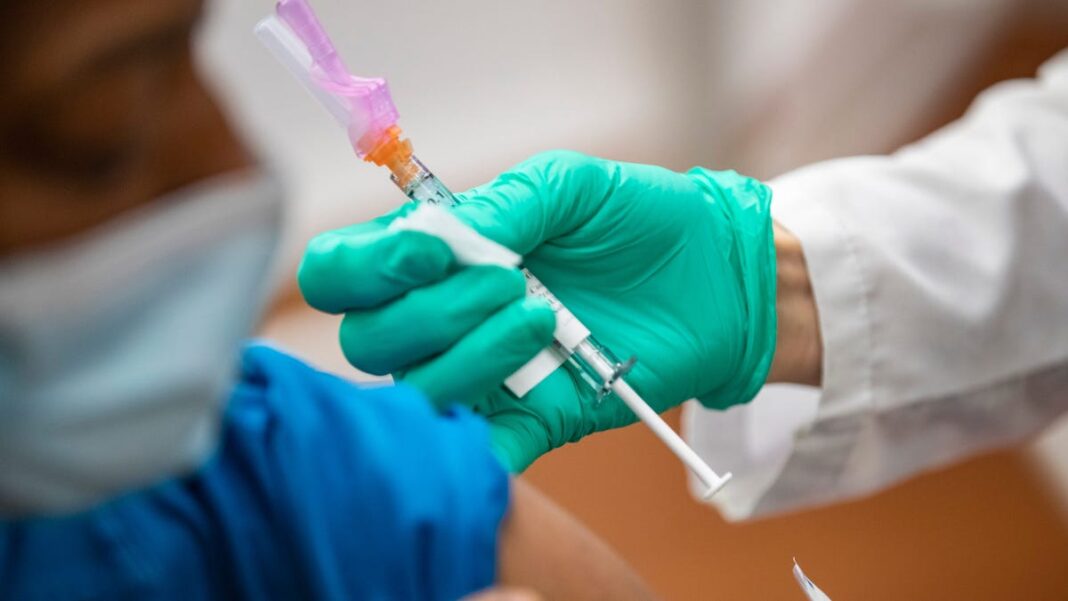Idaho health agency stops COVID vaccine program amid increasing opposition
An Idaho health department has made the decision to end its COVID-19 vaccination program, aligning itself with a rising trend of local governments resisting federal vaccination guidelines.
This trend raises concerns among public health professionals, who worry that similar health departments across the nation might stop providing vaccines and other essential health services.
During an Oct. 22 meeting, board members from Southwest District Health, located near Boise, voiced doubts about the vaccine’s safety and narrowly voted to cease providing vaccinations in the six counties they oversee.
In addition, health authorities in Texas, Florida, and Michigan, which previously spearheaded vaccination efforts during the pandemic, have also started to push back against the COVID-19 vaccine.
Last year, lawmakers in Texas prohibited health departments and state-funded organizations from using state funds to promote vaccination initiatives.
Similarly, the Florida Department of Health released guidance in September advising state residents against using mRNA COVID-19 vaccines, following a recommendation from the state’s surgeon general, Dr. Joseph Ladapo, to avoid them in 2023.
In Michigan, county commissioners in Ottawa County rejected a $900,000 grant for their health department back in September. Joe Moss, the commission chair, expressed his opposition to accepting any COVID-related grants, as reported by The Holland Sentinel. This budget change followed previous threats to cut funding that had led to local protests.
Many Idaho residents celebrated the Southwest District Board’s move to halt COVID-19 vaccinations last month. Judy Call, a 74-year-old resident who submitted a comment via email during the meeting, praised the board for making what she considered the “right call.”
“I am thankful that this health district had the bravery to stand against the immense pressure to conform,” said Call, a resident of Twin Falls, Idaho, located about two hours from Boise and not in the affected area.
However, legal and public health professionals are concerned that this decision may encourage other health departments to also cut back on their vaccination programs and related services.
The Centers for Disease Control and Prevention (CDC) continues to report close to 300 COVID-19-related deaths each week nationwide.
According to Karl Minges, associate dean for research at the University of New Haven’s School of Health Sciences, vulnerable groups such as the unhoused and residents of long-term care facilities will likely feel the most impact from these changes.
“It’s a local health department shirking its responsibility,” he stated. “Their role is to promote public health and address health crises, and they are turning their back on those who have limited access to vaccines from local pharmacies or hospitals.”
Stacey Lee, a health law and ethics professor at Johns Hopkins Carey Business School, argues that the Idaho board’s action oversteps the boundaries set by the Food and Drug Administration (FDA), which has declared the COVID-19 vaccine to be safe and effective.
“I hope this is just a temporary misstep that will be corrected when properly reviewed by the courts,” she remarked. However, considering recent legal challenges involving the abortion drug mifepristone that reached the Supreme Court, Lee mentioned that these types of cases are gaining traction.
“Ultimately, we may also see this issue taken to court,” she added. “It is rather disheartening.”
In a statement to YSL News, Dr. John Tribble, a physician representative on the board, questioned the safety of the vaccine, citing the “decreasing risk” of COVID-19 as a factor in the decision to stop vaccinations.
“We evaluated the risks and benefits for everyone considering the shots,” Tribble wrote. “We couldn’t, in good conscience, continue to offer a medical product that does more harm than good.”
Global research and safety monitoring have consistently demonstrated that COVID-19 vaccines are largely safe and efficient in preventing severe disease consequences.

